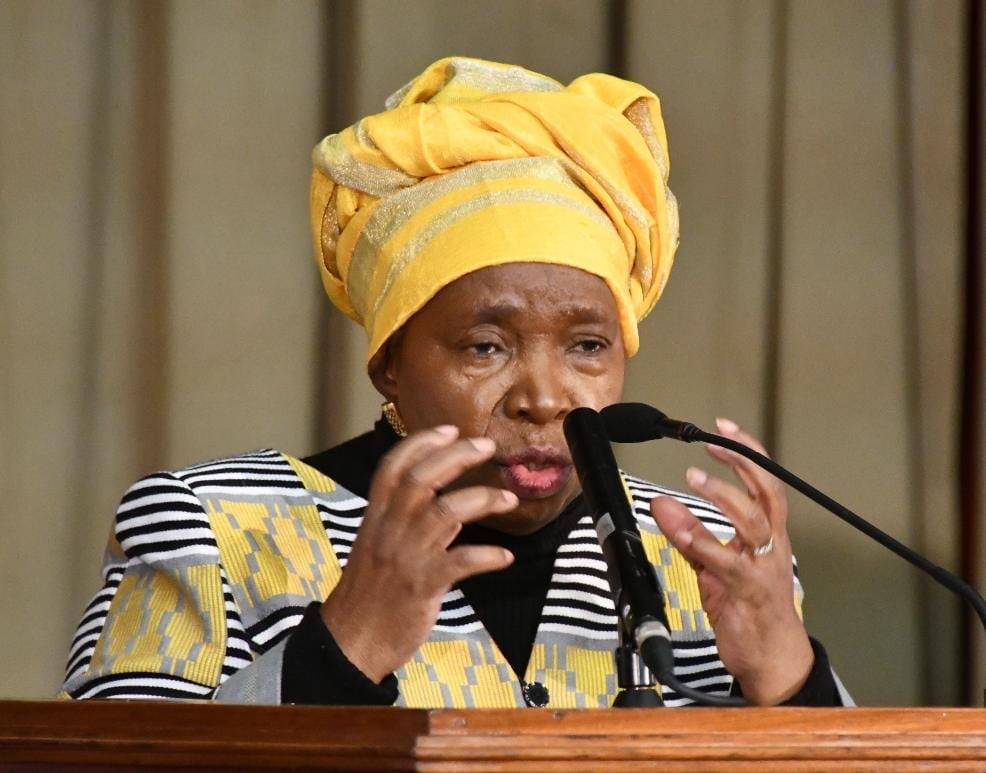


Cooperative Governance and Traditional Affairs Minister Nkosazana Dlamini-Zuma.
- The Constitutional Court has dismissed an application for direct access by a group of concerned citizens who wanted to have the lockdown regulations declared invalid.
- This after the Western Cape High Court dismissed their application.
- The Constitutional Court found it would not be in the interests of justice to hear the case at this stage.
The Constitutional Court has dismissed an application for direct access by a group of concerned citizens who wanted to have the lockdown regulations declared invalid, and the National Coronavirus Command Council (NCCC) declared inconsistent with the Constitution and Disaster Management Act.
Last month, the Western Cape High Court dismissed the application by Mpiyakhe Dlamini, Duwayne Esau, Tami Jackson, Lindo Khuzwayo, Mikhail Manuel, Neo Mkwane and Scott Roberts.
The applicants then approached the Constitutional Court, asking it for direct access to hear their appeal on an urgent basis.
READ MORE | Government winning court cases but losing public buy-in, say analysts
In a judgment handed down last week, the Constitutional Court dismissed their application.
“It has concluded that the application should be dismissed as it is not in the interests of justice to be heard at this stage,” read the brief ruling.
Costs
The court made no order on costs.
The respondents in the case are Cooperative Governance and Traditional Affairs Minister Nkosazana Dlamini-Zuma, President Cyril Ramaphosa, Trade and Industry Minister Ebrahim Patel, the NCCC and Disaster Management Centre.
Judges Rosheni Allie and Elizabeth Baartman had presided over the case in the Western Cape High Court.
READ | Lockdown: Dlamini-Zuma asks SCA for leave to appeal high court ruling
In her judgment of 83 pages, Allie said she was “satisfied that the regulations are justified”.
“I accept that the measures do not satisfy everyone and there is a great deal of criticism levelled against them.
“The inconvenience and discontent that the regulations have caused the applicants and others have to be weighed against the urgent objective and primary constitutional duty to save lives,” read her judgment.
“It is not for the courts to prescribe to government how it should exercise its mandate in those circumstances.”

